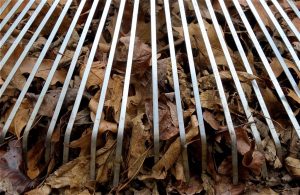
HRWC’s commitment to compiling and sharing noteworthy water-related news continues. This month’s News to Us covers the recent listing of Lake Erie as impaired waters, problems associated with low density development, a great river recovery story and some tips on good river “housekeeping” for autumn leaves.
Conservation Groups Applaud Michigan’s Inclusion of Lake Erie in Impaired Waters Report
Last week the Michigan Department of Environmental Quality listed western Lake Erie as impaired waters under the Clean Water Act. Environmental groups have been advocating for this for some time now as it will allow for further research, funding and action to address the nutrient pollution that leads to toxic algal blooms in Lake Erie. This is very good news for this Great Lake. Many are pushing for Ohio to follow suit.
Is the Infrastructure ‘Time Bomb’ Beginning to Blow?
It may not be immediately obvious, but low density development—what we see in suburban and rural areas where homes are built on large lots far from city centers—is not good for waters and watersheds. Here at HRWC we prefer high density development in a few areas as opposed to low density development everywhere. This article highlights one of the problems associated with sprawling development. “Low density housing cannot pay the bills.” The tax revenue is too low to cover the cost of infrastructure maintenance like roads, sewer and water necessary to serve these developments. When this infrastructure fails, the environment suffers. Check out our Smart Growth publications to learn more.
Taking Down Dams and Letting the Fish Flow
Last issue we shared an article about the human safety benefits of dam removal. This heartening story shows how quickly an ecosystem can rebound after dam removals. Three dams were removed on the Penobscot River in Maine in 2012 and 2013. Just three years later, huge numbers of native migratory fish have resumed their migration up the river—a trip they have not been able to make for nearly 200 years!
Leave The Leaves–Putting Organic Waste To Work
Leaves and grass that make their way into waterways add excess nutrients and use up valuable oxygen as they decompose. Local Master Composter Nancy Stone gives advice on how to utilize fall yard waste to maximize the benefits of fallen leaves. Leaves can be used in your yard to improve your soil and reduce weed growth. Nancy recommends mowing the leaves into your lawn. Mulching leaves can also reduce the greenhouse gas methane. Give this interview a listen as you are getting ready to clean up fall leaves. For more tips on river friendly home care visit our pollution prevention page.



